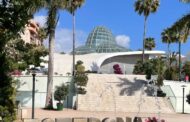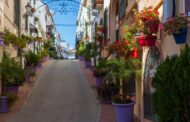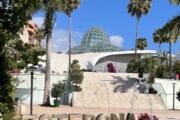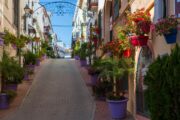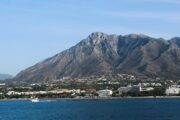A Historic Commemoration
The Feria de Málaga, also known as the August Fair, is a vibrant celebration that commemorates the city’s incorporation into the Crown of Castile on August 19, 1487. This historic event marked the end of Muslim rule in Málaga and the beginning of a new era under the Catholic Monarchs. The fair has evolved over the centuries, blending religious traditions with cultural festivities to become one of Spain’s most anticipated summer events.
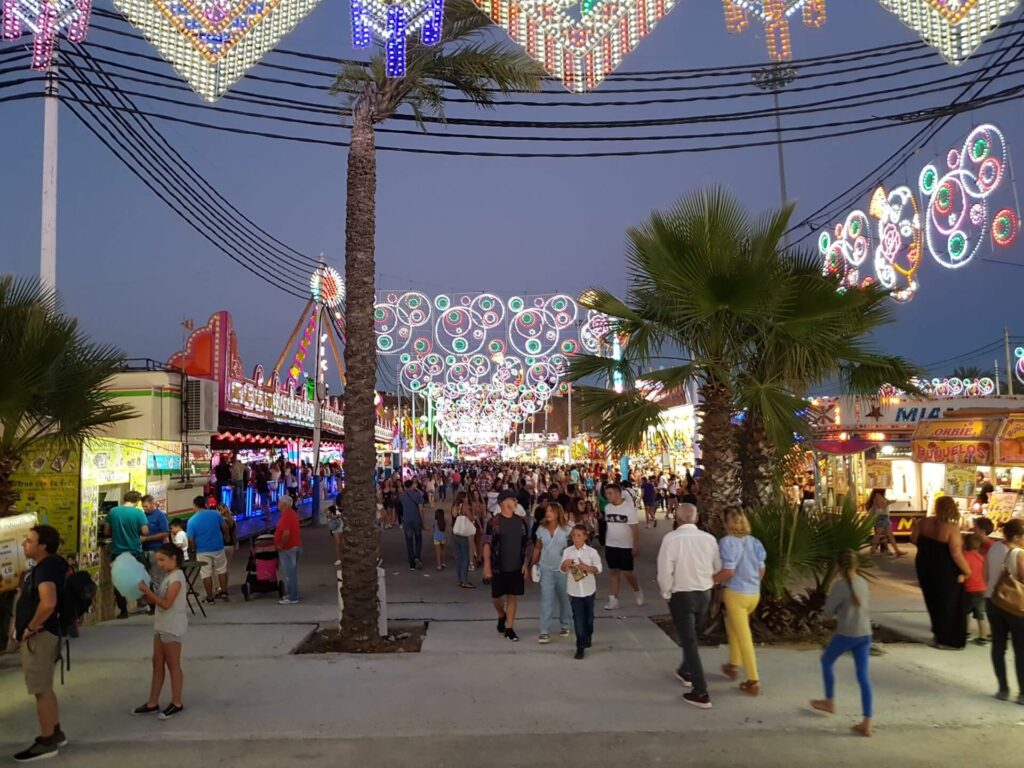
Dates and Duration
In 2025, the Feria de Málaga is scheduled to take place from August 16 to August 23. The festivities will commence with a spectacular fireworks display on the night of August 15, lighting up the skies over the city and signaling the start of eight days filled with music, dance, and celebration.
The Dual Nature of the Fair
One of the unique aspects of the Feria de Málaga is its division into two distinct celebrations: the Day Fair (Feria de Día) and the Night Fair (Feria de Noche). The Day Fair takes place in the city center, transforming the streets into a lively hub of activity with music, dancing, and traditional attire. The Night Fair is held at the Real de la Feria in the Cortijo de Torres district, featuring amusement rides, concerts, and casetas (marquees) where people gather to eat, drink, and dance until the early hours.
Cultural Highlights
Throughout the fair, attendees can experience a rich tapestry of Andalusian culture. Traditional music, such as flamenco and verdiales, fills the air, while dancers in colorful flamenco dresses perform in the streets. Horse-drawn carriages and riders in traditional attire add to the festive atmosphere, creating a picturesque scene that captures the essence of Málaga’s heritage.
Religious Significance
The fair also holds religious importance, particularly the Romería, a pilgrimage that honors the city’s patron saint, the Virgin of Victory. Participants, dressed in traditional clothing, journey from the city center to the Sanctuary of the Virgin of Victory, accompanied by decorated carts and horses. This event reflects the deep-rooted religious traditions that are integral to the fair’s identity.
Gastronomy and Local Delights
Food and drink are central to the Feria de Málaga experience. Visitors can indulge in a variety of local delicacies, including tapas, fried fish, and the famous Cartojal wine, a sweet Málaga wine traditionally consumed during the fair. The casetas offer a range of culinary options, allowing attendees to savor the flavors of Andalusia while enjoying the festive ambiance.
Entertainment and Performances
The fair boasts a diverse lineup of entertainment, featuring live music performances, dance shows, and theatrical productions. Both local and international artists take the stage, providing a dynamic array of performances that cater to all tastes. The combination of traditional and contemporary acts ensures that the fair remains a vibrant and inclusive celebration.
Accessibility and Inclusivity
Unlike some other Spanish fairs, the Feria de Málaga is known for its open and inclusive nature. Most casetas are public and free to enter, encouraging both locals and tourists to participate in the festivities. This welcoming atmosphere has contributed to the fair’s popularity, attracting visitors from around the world who come to experience the warmth and hospitality of Málaga.
Economic Impact
The Feria de Málaga significantly boosts the local economy, drawing millions of visitors and generating substantial revenue for businesses in the hospitality, retail, and transportation sectors. The influx of tourists during the fair period provides a vital economic stimulus, supporting jobs and promoting the city’s cultural offerings on an international stage.
Transportation and Logistics
To accommodate the increased traffic during the fair, Málaga implements special transportation services, including extended bus and train schedules. The city also designates additional parking areas and pedestrian zones to ensure smooth mobility for attendees. These logistical arrangements are crucial in managing the large crowds and maintaining the safety and enjoyment of all participants.
Conclusion
The Feria de Málaga stands as a testament to the city’s rich history, cultural vibrancy, and communal spirit. Its blend of tradition and modernity offers a unique experience that captivates the senses and fosters a deep appreciation for Andalusian heritage. Whether you’re drawn by the music, the food, the history, or the sheer joy of celebration, the Feria de Málaga promises an unforgettable journey into the heart of Spanish culture.




